You don’t need to be Convenience Retailer of the Year to know that an epos system is the way forward. From pricing up stock, to working out your best-sellers, epos is now central to running a convenience store. But while there were once just a handful of systems to choose from, these days retailers are faced with a plethora of companies all offering different solutions.
But not all epos systems are created equal. Gary Pilsworth of Great Offley Stores and Post Office in Hertfordshire has a basic epos system supplied by Easy Epos, but his business has evolved and it no longer meets his needs. “The software is becoming outdated; sometimes it freezes when I’m pricing up and I can’t put sales through the system,” he tells Convenience Store. “I’ve had three systems in the past 10 years. There has to be an easier way!”
So we asked a host of experts what retailers should be looking for when choosing a new epos system.
A key consideration is the level of support you are provided, notes Harry Goraya, who owns Nisa Rosherville Post Office in Kent. He is involved in developing a new epos system for Nisa. “We are one of about half a dozen Nisa stores testing out a new epos system, Evolution. It’s written from scratch and we’ve had it in store since June last year.”
Harry pays £120 a month for software and hardware support. He claims that speed of service is essential. “If you have a lot of credit card payments that you can’t accept then you might as well close. If we have any issue Monday-Friday we have a four-hour time frame for someone to fix it.
“A lot of the time engineers can dial into the system and fix it remotely,” he adds.
Jai Singh, who owns MJ’s Go Local Extra in Sheffield, recently changed his epos system while simultaneously refitting his store and switching symbol groups. He is now working with Image Retail Solutions, a preferred supplier of Go Local Extra. “It’s surprisingly cheaper than the system I had before and it does a lot more. I pay £77 a month for hardware and software support and replacement equipment. They can just dial into the system and access it remotely.”
Rishi Madhani of Today’s Stokenchurch in Berkshire is also happy with the level of support he receives from epos supplier IT Retail Systems. “I pay about £100 a month for software support. Even if I phone them at 8pm and tell them the credit card terminal has gone down and they’ll fix it.”
But support can go further than just repair work. A good epos supplier will work with you and adapt the system to meet your needs. “You have to have a good relationship with your technical guys,” says Jai. “They can tell you about what improvements they can make and how often. I was blown away by the updates Image Soft churns out - anything we ask they take on board.”
Rishi has a similarly personal service. “I get regular updates from IT Retail Systems. The good thing is that they are a small company and there’s not a price tag attached to every change you make,” he says. “I’ll request that I want my system to do something extra and they’ll do it. For example, I’ve just had the National Lottery installed and my epos provider has it set up so that I can just scan the individual barcode on each ticket, rather than type it in manually. It’s the shortcuts that can make a big difference.”
IT Retail Systems director Tanveer Mirza says: “The most important thing when choosing a new epos system is to ensure that the company and products you choose have the support and backup you will need.
“Support is not just about failure of equipment. A good team behind you can help you get the best out of the epos system and one you can rely on when needed. In terms of choosing the right solution, get references, especially within your own convenience retailer or symbol community, and ask your potential epos provider for reference sites.”
He warns retailers to make sure that the epos firm they choose owns its own software. “Be aware of companies who promise everything - they may not be able to deliver. Some companies do not own their software and therefore offer what is an off-the-shelf solution.
“A company that owns their software will have spent years gaining the experience and knowledge writing it for you, their target market.”
Christina Wingfield, marketing executive at epos provider Point Four, agrees that this is crucial. “Retailers need to choose a company with in-house development as they can keep evolving,” she says. “It’s about choosing a supplier that can do other things for you in the future. A lot of companies produce a one-off piece of software which is fine for the time being, but there’s no scope to develop it further.
“Some systems are very affordable - you can get them for £500 and might be able to make a 3% sales increase. But with a better system everything is integrated and you can achieve better results.”
So what are the extras you can get with a more sophisticated system? “One of the biggest things from a reports point of view is configurability,” says Point Four technical support manager Andrew Storrie. “On a best/worst selling report, you can look at what makes a product a best-seller in terms of multiple factors, such as sales, profit, retail value and margin.
“You need a system where the data is being integrated in the background so that you don’t need to cross-reference different reports,” adds Wingfield. “Epos can also analyse the performance of two sitings of a particular category, or of a category that you’ve changed the location of, and see the how effective each position is,” adds Wingfield.
Jai is using his epos to work out how much of a product’s success is down to its position in-store. “We’re trying to get our products in the correct categories and sub-categories. We’re breaking it down to specific shelves - for example, within pet food we can look at cat food and dog food. We can look at sales on a pie chart and see the best performing shelf and question whether it’s selling well because of location or because of particular products.
“I don’t want to overcomplicate it, but I want a snap shot and then I can drill down further if I need to.”
In order to create different subcategories, he is using a Piccolink wireless handheld terminal. “We can put it into category mode and then I can zap every product into a set category and blitz the shop and do everything in a week.”
Harry agrees that time-saving functions are crucial. “Running a store is a 24-hour job, but a good epos system means you spend more time tweaking product margins and checking shift patterns, and less time doing admin,” he says.
One of the key benefits to the system he is using it is that staff can use it independently. “We have five staff on the tills, all authorised to account for their tills and print out any discrepancies,” he says.
Staff can easily upload independently-sourced product lines, too, which proved tricky on the previous system. “We now have much greater control of individual store products so if you have unique lines at your store you can upload pictures of them onto the system. Before, it was just too complicated.”
Staff also have easy access to previous transactions. “If a customer discovers there was a mistake, any cashier can locate your till receipt and check if there’s been an error,” says Harry.
Accountability is also important, he notes. “Although staff can do these things, there is an audit trail so that you can see who did it and when so that there is accountability,” says Harry. “They can’t knock the price of something down to a penny - only the owner can authorise it, so you can keep a record.”
By opting for a system that can adapt to suit your needs, you can make your life much easier. Says Harry: “The flexibility of the system is key. I know people who’ve bought systems that only last five minutes because they’ve bought them from El Cheapo. Don’t do that - it’s a false investment.”
Technology
Loyalty schemes for small stores
For years, loyalty schemes have been the preserve of the large multiples, with the loyalty and insights they generate helping to fuel their success. But epos provider The Retail Data Partnership has come up with a solution for users of its ShopMate system.
“Convenience retailers deserve the same opportunities as multiples, so we have developed a loyalty scheme which combines the cutting-edge technology of the multiples with the personalised service that c-stores offer so well,” says marketing manager James Loker.
Retailers are provided with loyalty cards that are custom designed to their store or symbol group’s specifications.
Local Loyalty cards allow software on ShopMate to award or redeem points with any transaction. Both retailers and shoppers are given access to a custom-designed website for the loyalty scheme which shows the most recent offers available in the store, the points that each loyalty scheme member has been awarded so far, and personal targeted messages which are sent directly from the store to each customer.
Key functions
The added benefits of epos
Epos systems have advanced so much in recent years, says Tanveer Mirza, director of IT Retail Solutions.
Here he lists some of the key features now available:
Real-time systems mean you can see live sales in your back office stock and sales reporting
Sales and stock reports emailed directly from your epos system
Cloud-based services and reporting for downloading up-to-the minute data
Remote access from anywhere in the world via high-speed internet
POS integration with card payments, contactless card and mobile solutions, utility bill payments
Cigarette dispenser integration into your POS, increasing security and stock control
Extracting sales and performance data for improving relations with suppliers and achieving improved buying terms.
Source
.


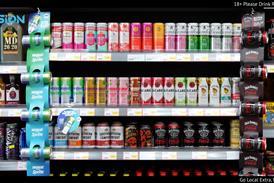




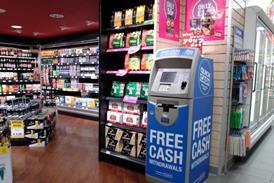
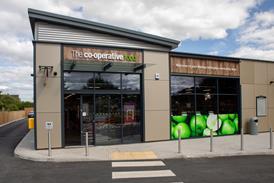








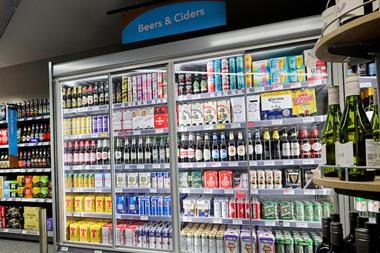


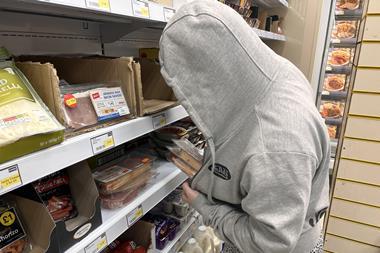
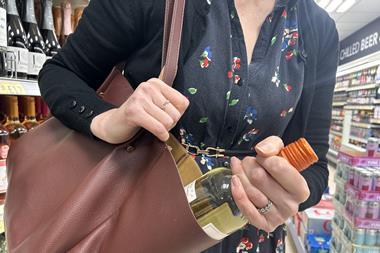
No comments yet